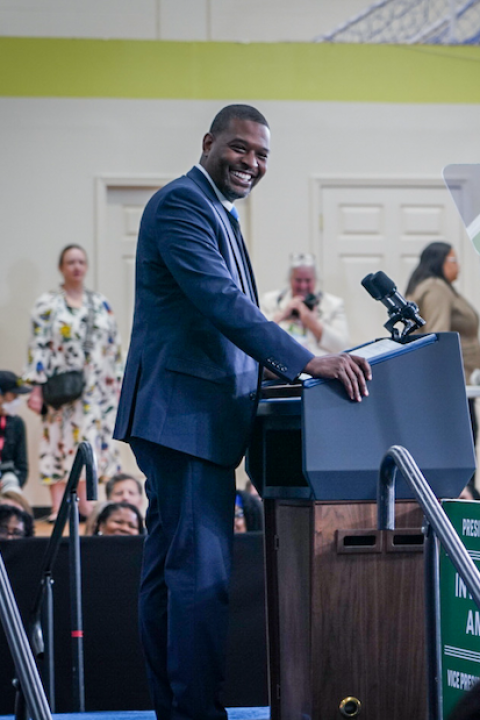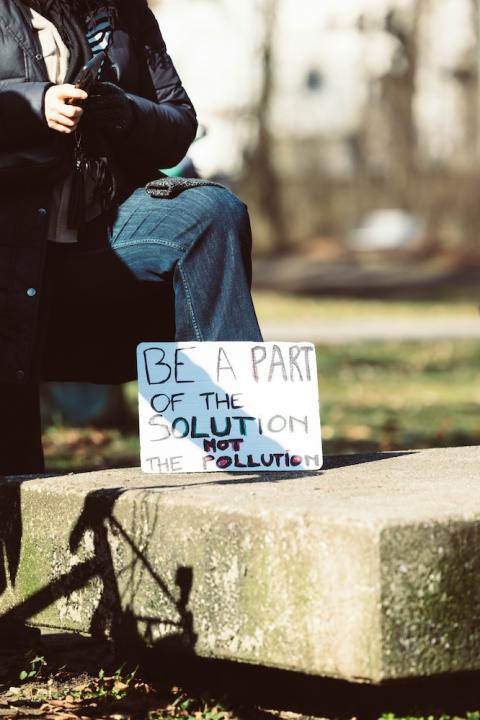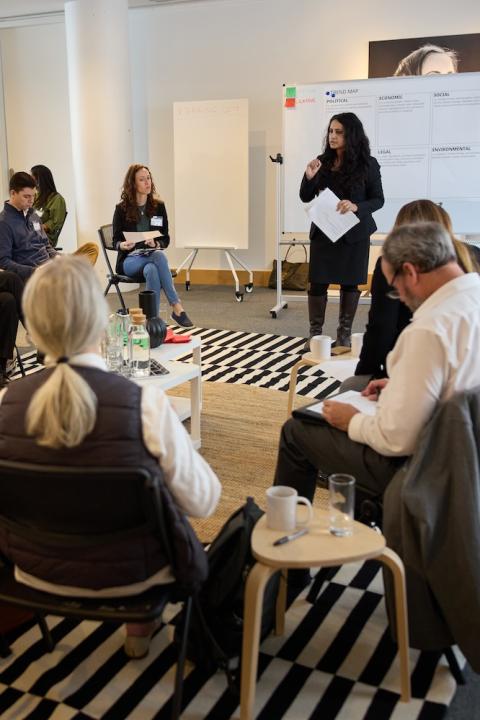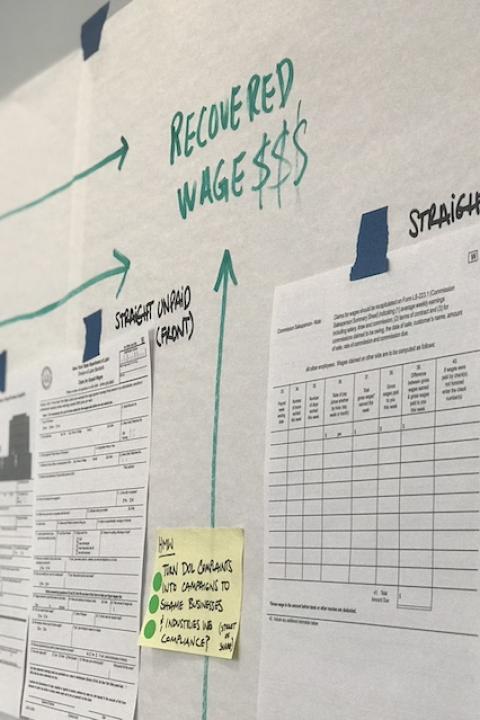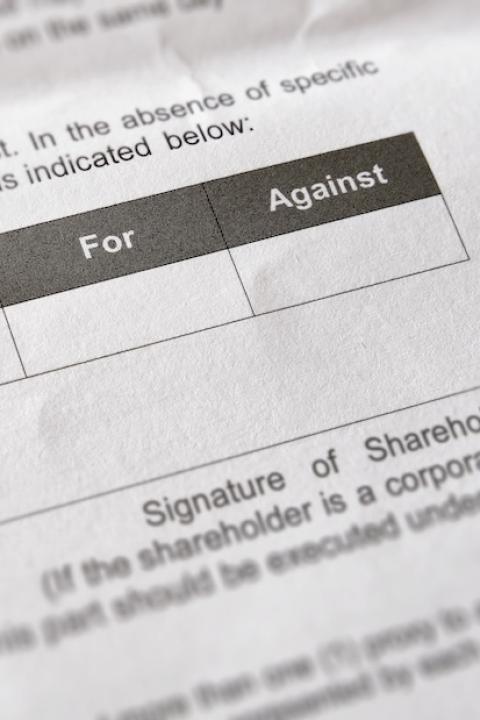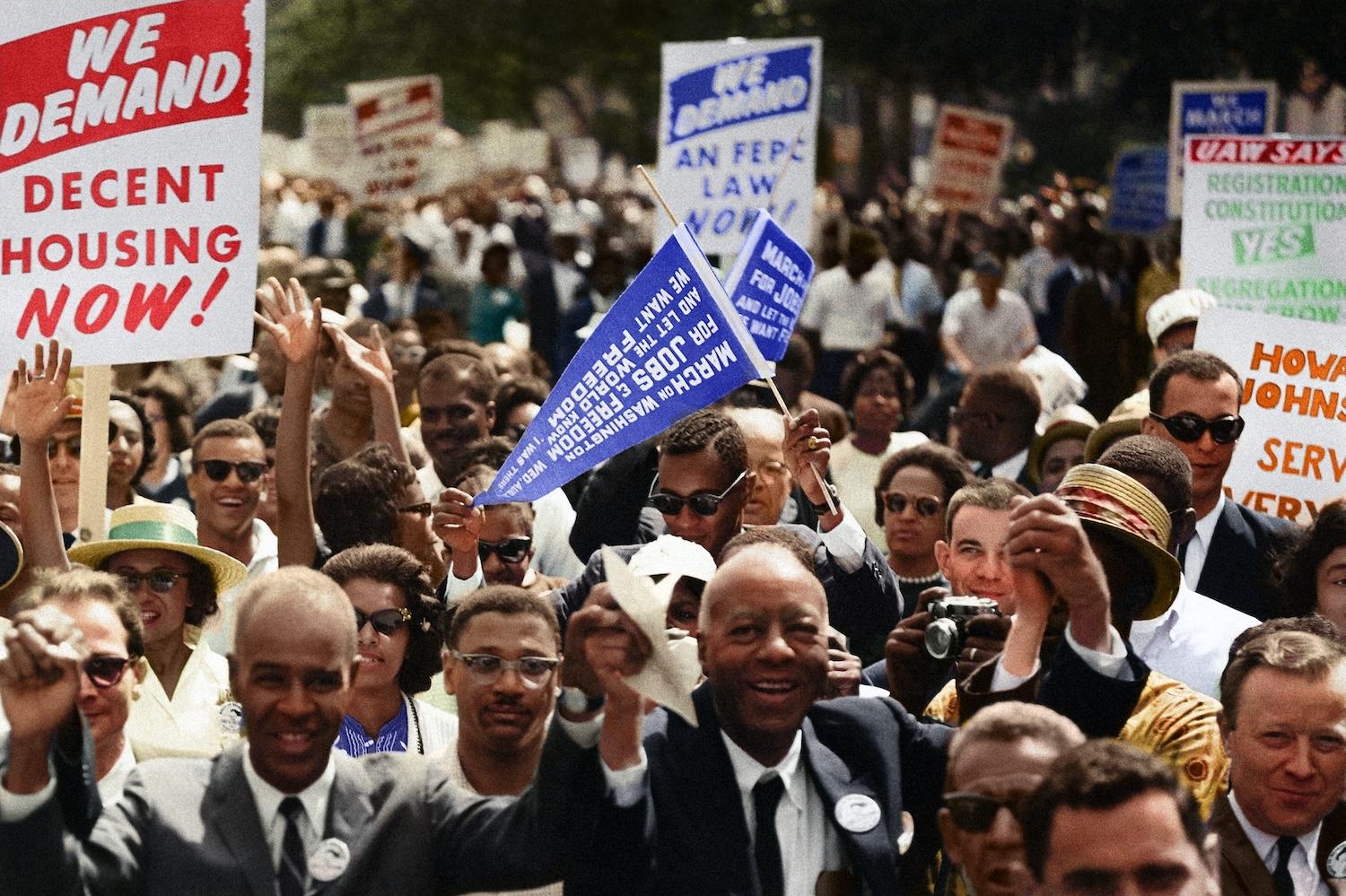
A colorized image of the 1963 civil rights March on Washington, where an estimated 250,000 people gathered to demand equal access to jobs, housing and education — and hear Martin Luther King Jr.'s now famous "I Have a Dream" speech. (Credit: U.S. Library of Congress. Colorized version made available via Unseen Histories on Unsplash.)
"The inseparable twin of racial injustice [is] economic injustice," Rev. Martin Luther King Jr. wrote in a 1958 essay titled "My Pilgrimage to Nonviolence." When it comes to racial equity in the United States today, "the statement is still real," said Lenwood V. Long Sr., CEO of the African American Alliance of CDFI CEOs, a coalition of Black-led community development financial institutions, credit unions and venture capital firms.
Indeed, the income gap between white and Black workers in the United States has actually increased since the 1970s, and districts serving predominantly students of color receive substantially less funding on average than those serving mostly white students. Black applicants are also nearly twice as likely as white applicants to be denied mortgage loans to purchase a home, one of the most powerful vehicles for building generational wealth. Black Americans who do own homes are more likely to have them appraised for lower than their true market value. These factors and more add up to Black families having an average 24 cents in wealth for every dollar owned by white families.
Efforts to push racial equity forward hinge on interventions to address these very problems. Pointing to a chilling legal environment, Long and other advocates see these efforts as under attack.
The U.S. Supreme Court effectively outlawed affirmative action at colleges and universities in a pair of cases decided in June of last year. And 2023 lawsuits led by conservative groups targeted funds aimed at investing in business leaders of color — including a suit against the Fearless Fund, which invests in women entrepreneurs of color, and the LiftFund supporting women and minority entrepreneurs.
Both affirmative action and investments in business leaders of color target longstanding areas of discrimination. Affirmative action dates back the Civil Rights Movement as a means to address racial discrimination in education and hiring, while funds like Fearless and Lift aim to correct imbalances in venture capital that result in Black entrepreneurs receiving less than 2 percent of all VC funding.
"What they're trying to do is go at the vital organs of the Black community — education and economic development — and say, 'Look here, you're trying to close the racial wealth gap. We’re going to stop you.’ And I think it's shameful,” Long said. "As vital as your heart is, as your lungs are, as the blood pumping in your veins, what is more vital to a just economy than education and economic development?"
In the lawsuits against investment funds in particular, the complainants argue that, by targeting specific entrepreneur communities, the funds discriminate against other entrepreneurs based on race. But narratives like these don't tell the whole story of where that money really goes, Long said.
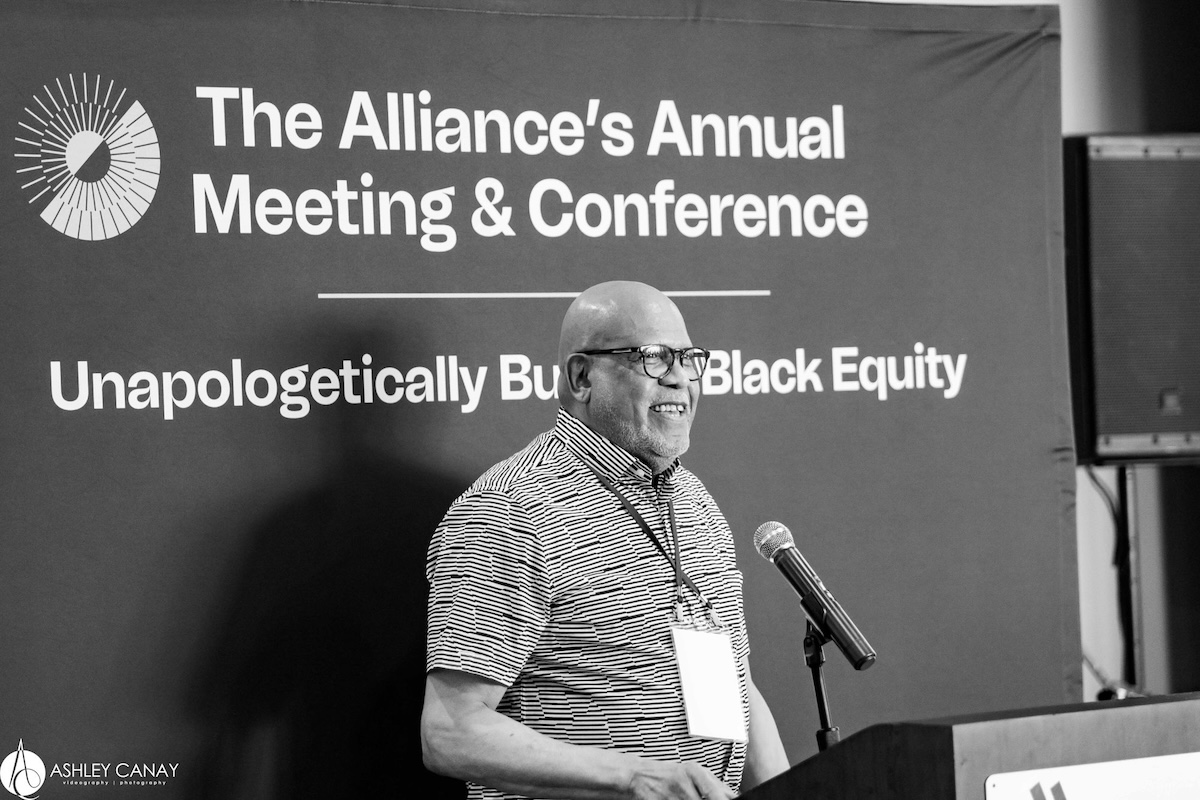
In a murky legal landscape, racial equity programming can be labeled discrimination
The African American Alliance of CDFI CEOs represents 76 Black-led community development financial institutions (CDFIs) and credit unions serving customers across all 50 U.S. states. Like all financial institutions, CDFIs and credit unions take in deposits from customers and use the money to make loans and investments to grow their bottom lines. But unlike big banks, which tend to seek out the largest and most lucrative investments possible, CDFIs and credit unions invest their money locally in the form of loans to entrepreneurs and for local development projects.
Along with providing capacity-building support, the Alliance runs the Black Renaissance Fund to provide its members with grants and loans. "Our fund is designed to go to Black-led CDFIs only, and they lend to their members," Long said. "They lend to entrepreneurs. They provide housing. They provide capital. If you follow the money flow: We're Black, they're Black, but the outflow, the output, is to not only Black and Brown organizations and entrepreneurs, but they're white as well. So, the final product of that, where the money goes, is to everybody."
Still, in the current legal environment, the simple fact that the Alliance is a group for Black-run institutions in particular, and that it invests in those institutions through the Black Renaissance Fund, could potentially put the organization in the crosshairs.
"We could be very vulnerable to somebody knocking on our door saying, 'You can't do this because you are lending to only Black-led CDFIs,' without looking at the output or the outcome of the dollars invested," Long said. "But, you know, let 'em come. We're not retreating. We're not changing anything. And we'll do whatever we need to do to fight back, to push back, to claw back, because enough is enough. We need conscious people to begin to look at what's happening and realize … what it is: It's a racist attempt to cripple and stop the progress of Black America in education and economic development. That's what it comes to."
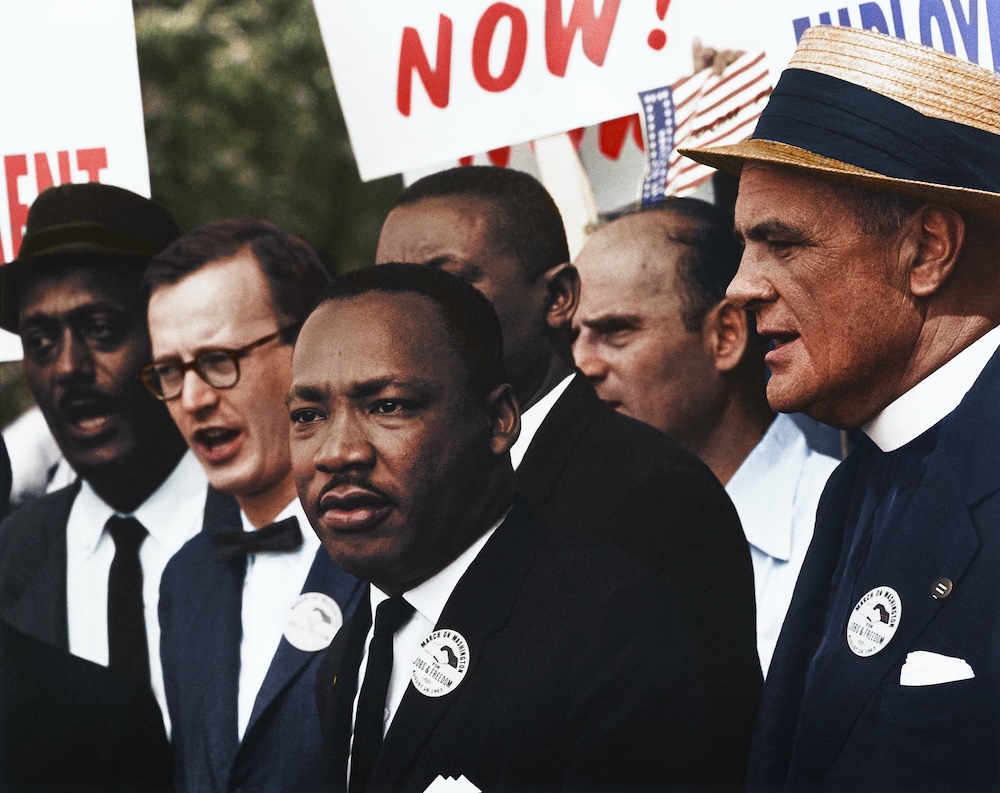
Returning to the roots of the Civil Rights Movement to push racial equity forward today
Like targeted funds such as the Fearless Fund and LiftFund, the Alliance's work aims to counter longstanding racial imbalances: White-led CDFIs own more than six times the assets of Black-led CDFIs in the U.S., according to 2020 research from the Hope Policy Institute.
Once the only way for Black Americans to access financial services, the number of Black-led CDFIs and credit unions is now dwindling. "The Black credit union used to be the norm — it was the only resource that Black folks could use to get a loan, to get a car, to get a house," Long said. "We created them, and then we left them suffering. And many of them are now closed. For example, in North Carolina, at one time there were 18 Black-led CDFIs or Black credit unions. There’s not one that’s Black-led today. All of them are under some other institution."
The Alliance has been supporting Black-led CDFIs since 2018, but it's not enough on its own to keep these organizations growing. Long called on Americans, and particularly Black Americans, to consider banking with these institutions to provide them with the capital they need to keep making loans and investments in their communities. "We are making white banks richer and starving our Black banks," he said.
If you look back at King's words, he felt the same way. "We've got to strengthen Black institutions," King said in his last speech before he was assassinated, delivered in support of striking sanitation workers in Memphis, Tennessee. "I call upon you to take your money out of the banks downtown and deposit your money in Tri-State Bank," he continued, referring to the Black-led bank founded in Memphis in the 1940s. "We want a 'bank-in' movement in Memphis."
While most know him as a civil rights visionary, King was also a fierce proponent of economic equity as essential to a truly racially just society. He led the charge for fair housing through the Chicago Freedom Movement and spearheaded the Poor People's Campaign to bring together "poor people of all colors and backgrounds to assert and win their right to a decent life and respect for their culture and dignity," to name just two examples.
Many, including his oldest son Martin Luther King III, speculate it was this work on poverty that got King killed, but there's much all of us can do to honor his legacy and continue his fight today.
Beyond the general public giving a second thought to where they bank, Long called on companies and financial institutions to take a closer look at the investments they make in support of community development projects — and where that money really goes. The Alliance offers a tool to help with this, called the African American Equity Impact Score Card. He also challenged individuals to put more of their retirement investments in Black-run institutions and for organizations like Black churches — already among the largest investors in Black-run financial institutions — to earmark a certain percentage of their donations to hold in Black-led CDFIs and credit unions.
"We need to go back and not forget, and again to make investment — not just penny investment, we need dollar investments in Black-run institutions that are doing the work in Black communities, run by people who spend their lifetimes building up housing or giving loans to Black entrepreneurs," Long said. "We have economic attitude changes that we have to make, and we have to look at how we invest in our communities that we care about."
In upcoming coverage on TriplePundit, we'll take a closer look at how organizations can analyze their investments and their balance sheets through the lens of racial equity, and what leaders at financial institutions learned when they did.

Mary has reported on sustainability and social impact for over a decade and now serves as executive editor of TriplePundit. She is also the general manager of TriplePundit's Brand Studio, which has worked with dozens of organizations on sustainability storytelling, and VP of content for TriplePundit's parent company 3BL.





